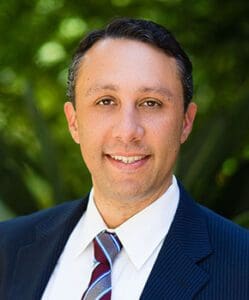Even though laws are in place to safeguard employees from discrimination due to certain protected characteristics, many dedicated employees who have given the better part of their working years to their company and career still report experiencing discrimination due to their age.
With nearly 20 percent of the United States workforce age 55 or older, ageism is on the rise at work. Thirty percent of workers over 53 years of age report facing age-related discrimination; some is based on the perception older workers’ benefits cost more, some on the mistaken perception they cannot learn new, cutting-edge procedures and processes, and some for other unjustified reasons.
Whatever the reason, older workers can be at greater risk for termination; this, combined with the difficulty they face in being hired, means it takes them longer than other workers to find a replacement job. If you are the victim of age-based harassment at work or have been subject to adverse action at work, e.g. termination or being passed over for a job, contact a skilled age discrimination attorney to see if you may be entitled to damages for the harm you suffered.
Age Discrimination in Employment Act (ADEA) and Fair Employment and Housing Act (FHEA)
Both the federal government and California have passed laws prohibiting age discrimination by employers. California provides more extensive protections for employees, but both acts allow victims to file lawsuits and seek damages if adverse employment actions have been taken against them as a result of their age.
The federal Age Discrimination in Employment Act (ADEA) prohibits employers with 20 or more employees from discriminating against both applicants and employees 40 years of age or older due to their age. California’s Fair Employment and Housing Act (FEHA) also prohibits employers from discriminating based on age and will hold violators liable.
If an employee is treated differently at work, terminated from employment, or faced any adverse employment action because of their age, they can sue for damages. Even if the conduct was not intended to discriminate, a policy or practice of the employer may still be unlawful if it disproportionately or negatively impacts older employees and is not based on any legitimate business reason.
Benefits
The ADEA also specifically forbids employers the ability to deny benefits to their employees 40 and older; some employers recognized providing older employees benefits cost more than younger employees and had adopted this practice to cut costs before Congress specifically prohibited it.
In some situations an employer may make age-based benefit reductions, but only when the cost to the employer of providing these benefits to older employees is less than what it would cost them to give the same benefits to their younger workers.
Additional Prohibitions on Age-Based Harassment
FEHA also includes a separate, specific prohibition of age-based harassment of employees. This means employers cannot create or permit the creation of an intimidating, offensive, or abusive work environment that negatively affects an employee’s ability to do their work. This prohibited conduct often arises in the form of:
- Derogatory or offensive statements or remarks about someone’s age
- Slurs
- Jokes
Not only can this create a valid claim for age discrimination, it may allow the victim to file an additional, separate lawsuit for age-based harassment. On the harassment claim, both the individual engaging in harassment as well as the victim’s employer may be liable for damages.
Federal law also prohibits creation of a hostile work environment or allowing harassment to result in adverse employment decisions against an employee. Though under federal law an isolated incident, such as a one-off offensive remark about someone’s age, is not always serious enough to rise to the level of harassment, frequent and severe conduct may incur liability on the part of a supervisor, coworker, or even a non-employee such as a client or a vendor.
What Does Age Discrimination at Work Look Like?
Age discrimination can take many forms, but some are more common than others. Often, employees report being:
- Passed over for promotions because of advanced age
- Terminated, laid off, or forced into resigning because of age
- Given lesser pay, fewer benefits, or less desirable job assignments
- Being passed over for hiring
- Demoted and having hours or pay reduced
Most cases involve discrimination or inappropriate conduct from a supervisor younger than the victim. This is not always the situation, though.
Job Advertisements, Postings, and Notices
Employers may not discriminate against potential employees based on age when they are seeking candidates to fill a position within their company. Employers cannot include preferences, limitations, or specifications related to age in job notices when recruiting or posting a job advertisement. The only exception to prohibiting age limits is if age is a bona fide job qualification related to an essential job duty, and if the limitation is reasonably necessary to the company’s normal operation.
Winning an Age Discrimination Case
When age is a factor for an adverse employment action, most bad actors will not admit their discriminatory motive. Employers and supervisors often submit pretextual reasons for their action such as employee performance or budget cuts. Victims must usually resort to proving their case through indirect evidence that raises suspicions, inconsistencies, or contradictory actions indicating that age was the true motivating factor for their decision. For example, if an older employee is not provided additional training when younger employees are and then terminated for unsatisfactory job performance, the reason for termination is likely pretextual.
Contact a Discrimination Lawyer
If you are the victim of age-based discrimination at work or have been passed over for a job because of your age, the skilled California employment lawyers at Walton Law, APC can help.
We will work with you to pursue maximum compensation for the harm you suffered and help you get your life back on track after being victimized on the job.
Contact us 24/7 by calling (866) 338-7079 or using our Contact Us page to schedule your risk free case review. The initial consultation is always free.
